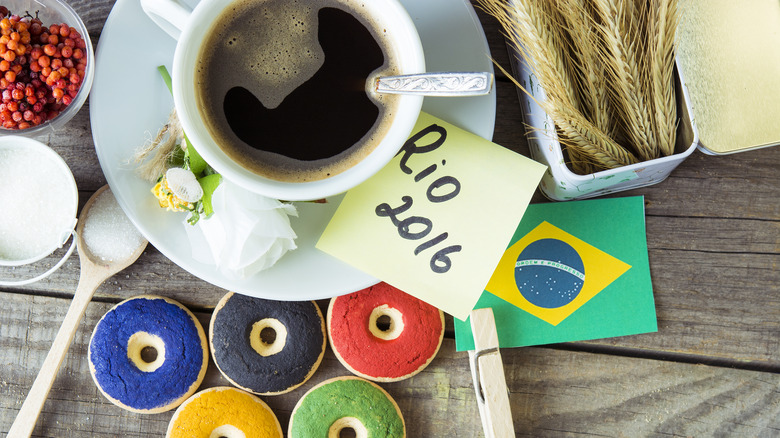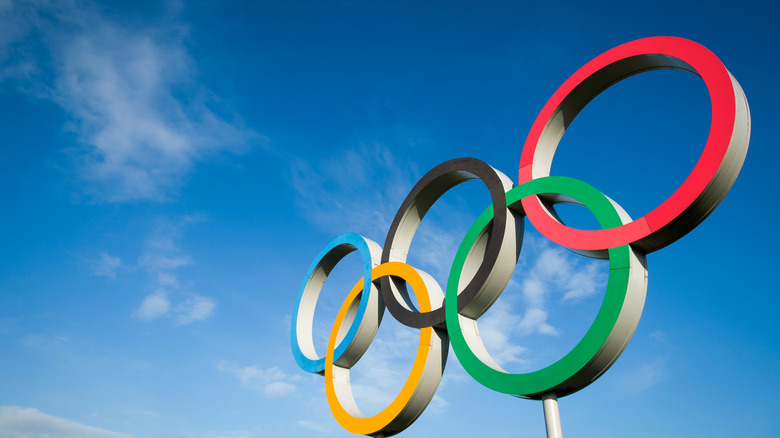How Coffee Once Helped Send Brazil To The Olympics
Seven out of 10 Americans drink coffee every week, according to the National Coffee Association, and 62% drink it every day. The coffees we love best and that routinely fill our coffee mugs, most likely hail from Brazil, which produces 25% of the world's coffee, per the Nomad Coffee Club. In fact, 40 to 60 million bags of java are produced by this South American country on an annual basis, with Belgium, Japan, Italy, the United States, and Germany being the countries which receive the most imports of this Brazilian brew. With over 300,000 plantations, Brazil's coffee industry is an important part of the country's economy and history.
Surprisingly, coffee is a relatively new crop for Brazil, making its debut in the 18th century when Portugal contracted with a soldier to steal a coffee plant from a French territory. The soldier brought the plant to a state in Brazil, planted it, and by the 1840s, Brazil was the leading producer of coffee around the world. This beverage is intertwined with their culture and even played an important role in getting the country's 1932 Olympic team to Los Angeles, California, to compete, per Sports Illustrated's column The Vault.
Coffee was currency
The Olympics are the ultimate sports competition for an athlete, but according to Sports Illustrated, in 1932 countries around the world were all coping with the effects of the Great Depression and were strapped for cash. And for Brazil, the idea of sending a team to California to compete was impossible. Except, as the saying goes, necessity is the mother of invention, and one inventive government official came up with the idea that the team could pay for their participation by crewing a boat loaded with 50,000 pounds of coffee that they could sell as they sailed up the coast to California. Sounds like a movie in the making, right?
This trip had all the elements to brew up the perfect disaster, and it did not fail on that account. The 69-member Brazilian team, along with the accompanying 50-piece National Brazilian Marine Band, faced many obstacles and setbacks along the way. By the time they reached the port of Los Angeles, they had only $24 left from their coffee sales. They couldn't even pay the head tax, so the travelers could disembark. Instead, they were forced to pick 24 athletes, who ended up participating in track and field, swimming, water polo, rowing, and shooting. Spoilers. They won zero medals, and only had a single point to show for their efforts. But without coffee, this story never could have happened.

